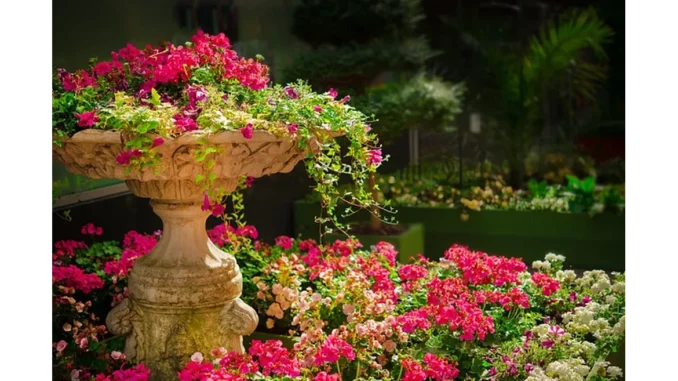
When the world feels like it’s moving too fast, many seek solace in the calming embrace of nature. Scott Williams, a passionate horticulturist with over two decades of experience, recently sat down with journalist Lewis Harper to share his insights on how gardening can be a powerful tool for relaxation and stress reduction. Scott’s approach is enriched by practical tips and suggestions that can transform any garden into a personal sanctuary.
The Therapeutic Power of Gardening
Scott began the conversation by highlighting the intrinsic therapeutic benefits of gardening. “Gardening is not just about plants; it’s about creating an environment where you can unwind and connect with nature,” he said. The act of tending to plants, watching them grow, and being in the fresh air can significantly reduce stress levels. “There’s something profoundly meditative about the repetitive actions of digging, planting, and watering,” Scott noted.
Creating a Relaxing Garden Space
One of Scott’s primary suggestions is to design the garden with relaxation in mind. “Think about what brings you peace,” he advised. “For some, it’s the sound of water, so a small fountain or pond could be ideal. For others, it’s the sight of vibrant flowers, so a colourful flowerbed might be the way to go.”
Scott also emphasised the importance of a seating area. “Having a comfortable place to sit and enjoy your garden is crucial. It could be a hammock, a bench, or even a cosy corner with soft cushions. The key is to create a space where you can sit back, relax, and soak in the beauty around you.”
Mindful Gardening Practices
Scott encourages gardeners to adopt mindful practices. “When you’re in the garden, try to be present,” he suggested. “Notice the different shades of green, the texture of the soil, the scent of the flowers. This mindfulness can help you feel more grounded and less anxious.”
He also recommends setting aside technology while gardening. “Leave your phone inside. Let this be a time to disconnect from digital distractions and reconnect with the natural world.”
The Role of Soil in Gardening
Understanding the soil is fundamental to successful gardening, and Scott believes that a good garden starts from the ground up. “Healthy soil is the foundation of a thriving garden,” he explained. “It’s where your plants get their nutrients, so it’s important to know what’s in your soil.”
Scott introduced the idea of home soil testing as an essential practice. “By testing your soil, you can understand its pH level, nutrient content, and composition. This information is invaluable because it helps you know what your plants need and what you might need to add to the soil to make it more fertile.”
How to Test Your Soil
Scott shared some practical steps for home soil testing. “You can start with a simple pH test kit, which you can find at most garden centres,” he explained. “Take samples from different parts of your garden to get a comprehensive view of your soil’s condition.”
He also mentioned that more detailed testing might be necessary for those who want to dive deeper. “There are services available that can analyse your soil and provide a detailed report on its nutrient levels and structure. This can be extremely helpful in making informed decisions about fertilisers and soil amendments.”
Incorporating Nature into Everyday Life
Scott believes that the benefits of gardening extend beyond the garden itself. “Bringing elements of nature into your home can also be very soothing,” he said. “Houseplants, for example, can improve air quality and add a touch of greenery to your indoor spaces.”
He suggested starting with easy-to-care-for plants like succulents or spider plants. “These plants are hardy and don’t require a lot of attention, making them perfect for beginners.”
Gardening as a Community Activity
Finally, Scott touched on the social aspects of gardening. “Gardening can be a great way to connect with others,” he said. “Community gardens, gardening clubs, or simply sharing tips and plants with neighbours can create a sense of camaraderie and shared purpose.”
He recounted a personal experience of participating in a community garden project. “Working together to create something beautiful was incredibly rewarding,” he recalled. “It not only reduced stress but also fostered a sense of belonging and community.”
Conclusion
As the interview drew to a close, Scott reiterated the transformative power of gardening. “In our fast-paced world, taking the time to nurture a garden can be a profound act of self-care,” he said. “It’s about more than just growing plants; it’s about growing peace and tranquillity in our lives.”
For those looking to start their gardening journey, Scott’s advice is simple: “Just begin. Whether it’s a small herb garden on your windowsill or a full-blown vegetable plot, the act of gardening can bring immense joy and relaxation.”
Lewis Harper


Be the first to comment